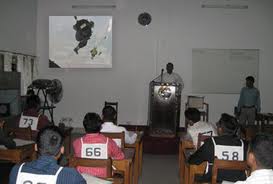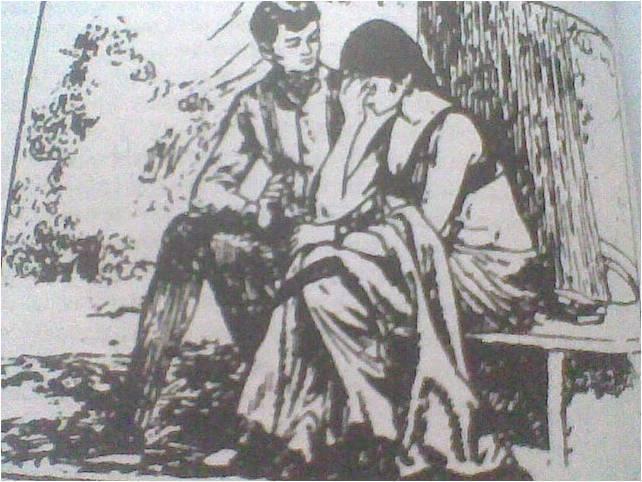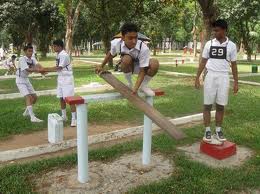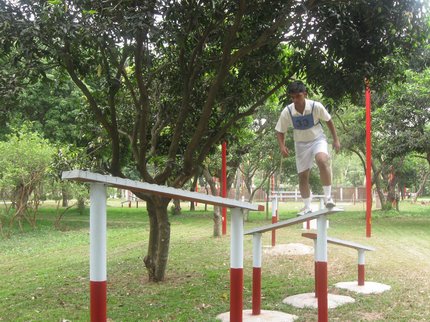QUESTIONS OF GEOGRAPHY OF PAKISTAN
General Knowledge Questions Related To Geography Of Pakistan
- Total area of Pakistan is 769,096 sq km, and the total area of Azad Kashmir is 13,297 km.
- Pakistan lies between 61E to 75.5 E longitrade and 24N to 37N Latitudes.
- The standard time of Pakistan is five hours ahead of Greenwhich Mean time.
- The tropic of Cancer (23N 30N) does and allow the sun rays to become very, therefore Pakistan records high temperature in summer and the winter are not very severe.
- Pakistan is surrounded by land on three sickles east, west and North and Arabian Sea is on its South and makes 1046 km (650 miles) coast line.
- Pakistan’s territory sea limit is 12 nm; the Exclusive meantime economic zone of Pakistan is 240 nm.
- Out of the total area of Pakistan 1% is levered by Islamabad (906 sq km).
- Out of total area of Pakistan, FATA covers 3% I, e. 27,220 sq km.
- 58% area of Pakistan is covered by Mountains and plateaus and 42% by plains and detests.
- Pakistan is Land locked from three sides. It has following immediate neighbors.
- East India, 1610 km (1000 miles) border. Radchiff live and Run off Kuchh are two boundary lines between India and Pakistan. Run off kuchh is also called 24th parallel line, it was signed in 1968. Two railway lines connect Pakistan with India. One through Wagah near Lahore connects Atari near Amritsar. Other exists between khokrapar (Sindh) and Munabao (India) in 1949 leare-fire line came into existence, but line of control (720 km) was demarcated in 1972 (simla agreement).
- China lies in the North of Pakistan. Karakoram and Himalayas are two snow capped mountain Ranges which make a border between the two countries.Boundary agreement between china and Pakistan was ringed in 1963. The border between Pakistan and china is 585 km.
- Afghanistan is located of the North Western border of Pakistan. Pakistan had a longest border with Afghanistan which is 2252 km. It is called Durand line. It was established in 1893 by an agreement between Afghanistan British Rulers. There are two important Roads that link Afghanistan with Pakistan. One links Peshawar with Kabul Via the famous Khyber Pass. Another links Quetta to Kandhar via the Khojak Pass.
- Iran lies to the South west of Pakistan. There is 805 km long direct border between Pakistan and Iran.The boundary line demarcated in 1960. There is a railway link between Pakistan and Iran. Koh-i-Taftan is border railway station in Pakistan and Zahedan in Iran. Another road links sowthern Balochistan through turbot and Mand with Iran.
- Wakkan, a narrow strip of Afghanistan separates Pakistan from Tajikistan one of the Land locked central Asian states.
- The Strait of Hormuz is close to Pakistan. Pakistan port Gawadar is very strategically located. It can effectively guard the Strait of Hormuz which is a major route for oil and other traffic of the Gulf area.
- Baluchistan is the largest province according to area and least populous province of Pakistan. It covers 44% total area of Pakistan. It has common borders with Iran and Afghanistan. It shares its border with the remaining three provinces and the Arabian Sea also.
- Punjab is the second largest province according to area and first largest in population. It covers 25.8% area of the total area of Pakistan. In the east, it has a common border with
- India and internally Sindh lies to its south, KPK to the west and Jammu and Kashmir to the North.
- Sindh is the third largest province according to area and second largest in population. It covers 17.7% of the total area of Pakistan. It has common border with India, Punjab, Balochistan and the Arabian Sea.
- Khyber Pakhtunkhwa covers 6% area out of the total area of Pakistan. It has common border with Punjab, Balochistan and Northern Area.
- Islamabad 906 sq km. 0.1% of total Area of Pakistan.
- Siachen is the highest battlefield in world it is the largest glacier of Pakistan it is 45 miles long and 2000 feet high.
- K-2 is the highest mountain in Pakistan, it is located in Karakoram mountain range, and its height is 8611 meters. It was first conquered by Good win Austin in 1954 that’s why it is also called Good win Austin. It is the second highest peak in the world.
- The youngest mountains of the world (Himalayas) are present in Pakistan but oldest mountains are in India.Karakoram Range separates Pakistan from china and made a boundary between two countries.
- Hindu Kush Range separates Pakistan from Afghanistan.
- The Karakoram Mountains lie on North of the Indus River and extend northward beyond the borders of Pakistan. They are nearly 200 km wide.
- The Karakoram Range is most extensively snow covered, eighteen glaciers ranging from 7 km to 72 km are found here. The longest are the
- Siachen 72 kms and the Biafo 625 kms.
- Total area covered by glaciers in Pakistan is 13% of total area of Pakistan it is 13680 sq km.
- Batura, Biafo Shispar chogo Lungma glaciers are also located in Karakoram Mountain Range.
- The world’s highest passes such as Khunjrab, Lawari and Shandoor are siuated in Karakoram Mountain Range.
- The highest Peak of Himalayas Range in Pakistan is Naga Parbat. It is 8126m high and second highest Peak in Pakistan. It was first conquered in 1953.
- The highest Peak of Hindu Kush range is Tirch Mir. It is 7670m high. It starts from Pamir.
- In Pakistan five Peaks have more than 8000m height. Pakistan has 82 Peaks in her territory.
- Hindu Kush Mountain is mostly located in Afghanistan. It guards the northern border of Pakistan. Areas of Chitral and Dir are in this Mountain Range.
- Valley of Hunza is in between the Karakoram and Himalaya is located near the Koh-e-Safed.it is on the South of River Kabul. It is 3000 m high.
- Khyber Pass is also located in Koh-e-Safed Mountain Range. Its average height is 3000m.
- The highest Peak of Koh-e- Sulaiman range is Takhat-e-Sulaiman. Its height is 3500m.
- Siachen glacier is located in the region of Baltistan. It is the largest glacier of Pakistan it is 72km long. It is also the highest glacier of Pakistan.
- The highest pass in Pakistan is Karakoram pass, Khyber Pass is
- 54km long pass; it connects Pakistan with Afghanistan through Peshawar.
- Dargai Pass connects Mardan with Malakand.
- Lawari Pass located in Dir is 3188m high. It connects Dir with Chitral.
- Bolan Pass located in Sulaiman Range is 989 meters high. It connects Quetta with Sindh Plains.
- Gomal pass located in Waziristan Hills connects Dera Ismail Khan with Ghazni a Province of Afghanistan.
- Babusar pass located in great Himalaya is a link between Mansehra and Northern Areas of Pakistan. It is 4173m high. It also connects Abbotabad with Gilgit.
- Khojak passes connects Cheman with Qila Abdullah (Afghanistan). It is 1312m high in Toba Kakar Range.
- Malakand pass connects Peshawar with Chitral.
- Baroghil pass connects Chitral with Wahkhan.
- Muztagh pass connects Baltistan with China. It is a gateway to Chinese area Yarkand.
- The Baroghil pass connects Pakistan with Wahkhan in Afghanistan.
- The Dorah and Shera Shing passes also lie between Pakistan and Afghanistan.
- Potwar Plateau and the salt ranges are in between the River Indus and River Jehlum.
- Margalla Hills of Islamabad are located in the Potwar Plateau. It is on the River Soan.
- The Passes Kurram, Tochi and Cromal are named after the rivers near which they are located.
- River Swat is a tributary of River Kabul.
- Lake Saiful Muluk in the upper Kaghan Valley is located in Himalaya Range.
- Satpara Lake near Skardu is located in the Himalaya Mountain Range of Pakistan.
- Beautiful Hill station of Pakistan live Ghora Gali, Nathia Gali and Murree are located in Himalaya Mountain Range.
- Sakesar 1527 meters high Peak is the highest Peak of Salt Range in Pakistan.
- Kallar Kahar, Uchali and Khabeki are the beautiful laves of River Jehlum in Salt Range.
- Warsak Dam is built on Kabul River.
- The Tanda Dam is the Kohat River, which is a tributary of Kabul River.
- The chagai Hills, the northernmost range are located at Pakistan Afghan border they are about 130km long.
- Tala Jogian is a highest Peak of Salt Range, it is 975 meters high. It is in between River Jehlum & River Sawan.
- The Pakistan total Coastal area is 1046 Kilometers long, the Makran Coast extending from Karachi in the east to Jiwani in the west. Overall the Makran Coast is fairly straight with no marked indentions.
- The Makran Coast has a number of uplift terraces which make an Island shape there are Cliften Hills, Manora, Cape Morze, Ormara, Gwadar and Jiwani.The largest Island of Pakistan is Manora.
- Sinking is a Chinese Provice with which Pakistani boundry is connected.
- Zahidan is area of Iran with which Pakistani boundary is connected.
- Ghazni, Kandhar, Paktia and Wakhan are the areas of Afghanistan with which Pakistan shares her border which is commonly called Durand Line. It is 2252 kilometers long.
- Thar desert lies in between River Jhelum and River Indus.
- Kharan it is located in North West of Balochistan Province.
- River Chenab, Ravi, Sutluj and Jhelum join the River Indus at Kot Mithan. Cholistan or Rohi 75000 sq km Bahawalpur, Sukkur, Khair pur, Sanghar, Mir pur Khas, Tharparkar. Cholistan or Rohi in Sindh is called patand Thar in Northern and Southern parts respectively.
- The Source of Indus River is Mansorawar Lake in Tibet.
- The Indus plans from East to West. The Indus and its tributaries constitute the whole River system of Indus. It is 2900 kilometers Long River. It has a catchment area of 970, 000 square kms.
- Jhelum and Chenab Rivers meet at Trimmu Headworks.
- The longest river of Balochistan is Hingol. Balochistan other rivers Porali and Dasht are major rivers.
- The Indus River risen from Tibet, it is also called the Nile of Pakistan, it is the longest river of Pakistan and River Ravi is the Smallest.
- 8 Rivers flow in the territory of Khyber Pakhtunkhwa (Zhob, Mula, Gomal, Sowat, Kunhar, Kuram, Parorj Kora).
- The River Ravi Originates from Indian state Himalaya Paradesh. It is 115km long.
- The Harappa a historical city is located on River Ravi near Sahiwal.
- Chenab and Jehlum flow from Kashmir.
- Length of Pak-India border is 1,610 km. Length of Pak-Iran border is 805 km.Length of Pak-China border is 595 km. Length of Pak- Afghan border is 2252 km.
- Warsak dam is on Kabul River.Rawal Dam is on Kurrang River. Khanpur dam is on Haro River.Tanda dam is in Baluchistan. Tarbela deam was completed in 1969.
- Muztag pass connects Gilgit- Yarkand (China).
- Khankum Pass connects Chitral- Wakhan (Afghanistan)
- The Shandur Pass connects Chitral and Gilgit.
- Khyber Pass connects Peshawar-Kabul
- Kulk pass connects Gilgit-China.
- Bolan Pass connects Queta- Afghanistan.
- Tochi Pass connects Pakistan- China.
- Length of Silk Rourte (Korakorum Route) is 965 km.
- Madhupur Head works is located on the river Ravi.Ferozpur Head works is located on river Sutluj.
- Pakistan bought Gwadar from King of maskat at the cost of 40 lakh pounds on 8th September 1958.
- Six barrages are constructed on the River Indus. Barrages on Indus are Toonsa, Jinnah, Sukkur, Gudo, Kotri & Ghulam Mohammad.
- Three deserts are located in Pakistan, which are namely; Thar (Sindh), Thal, Cholistan (Punjab).
- Hindu-kush range is also known as Little Pamirs.
- Sub-Himalya is also known as Siwaliks.
- The Sindh Sagar Doab is also known as Thal Desert.
- Takht-i-Suleman is the highest peak of Sulaiman Mountains.
- Hispar Glacies is located in Hunza.
- Katch and Gawadar are the districts of Makran Division.
- Pakistan can be divided into six natural regions.
- The coldest place in Pakistan is Sakardu and hottest place is Jacababad.
- Most of the Hosiery Industry is located in Karachi.
- The Heavy Mechanical complex was established with the help of China at Taxila.
- Kohat is the oldest cantonment of Pakistan.
- Sukkur barrage is the largest barrage of Pakistan completed in 1932.
- Baheshti Darwaza is located in Pakpattan.
- Hazrat Data Gunj Baksh came in Lahore in 1039 A.D. from the city of Ghazni.
- Sher Shah built G.T. Road and Rohtas fort. Imperial Highway is the old name of G.T. Road.
- Nanga Parbat is located in Himalaya Range. It is commonly known as Killer Mountain.
- Karakoram highway was completed in 1978. Karakoram was completed in the total period of 20 years.
- Karakoram is a Turkish word. Karakoram highway passes through khunjrab pass.
- Punial is said to be the place where ‘heaven and earth meet’.
- Siachin glacier is located near Astor.
- Hunza is called real Shangrilla.
- French Beach is located at Karachi.
- Ranikot Fort is the largest fort of Pakistan, which is located near Hyderabad.
- Meerani Dam is under construction near Turbat.
- Chashma barrage was built in 1971 on river Indus.
- Warsak dam was built in 1960 on river Kabul.
- Rawal dam was built in 1965 on river Kurang.
- Pakistan’s oldest archaeological site is situated near Larkana.
- Khewra is the main source of gypsum in Pakistan.
- Sainadak is famous for copper, silver and gold.
- Peshawar means ‘city of flowers’.
- Lahore Fort was built in 1560.
- Mahbub-ul-Haq Human Development Center is locates at Islamabad.
- Nasirabad region of Balochistan will be irrigated through Kachi cananl.
- Kharan district of the country having lowest population density.
- In violation of lndus Basin Treaty 1960, India has constructed Wullar barrage on River Jhelum.
- Water -flows of the river are diverted to Wuller Barrage through the construction of Kishanganga Dam.
- India is constructing Kishanganga Dam in Baramula.
- India has constructed “Baglihar Dam” in occupied Kashmir`s district of Doda.
- “AKHORI DAM” is located across Nandnakas near Akhori village about 28 KM east of Attock Punjab.
- Largest district of Punjab by area is Bahawalpur. Tropic of cancer crosses Pakistan.
- Pakistan has the second largest Muslim population in the world. About one fifth of the population lives below the international poverty line (US$1.25 per day).
- More than 60 languages are spoken in Pakistan. English is the official language of Pakistan and is used in government.
- 96% of the population is Muslims. Just over 1.5% is Christians.
- Pakistan has the sixth largest military force in the world.
- Pakistan has cold, dry winters and hot, wet summers.
- Despite once being called the world’s most dangerous country in a British magazine (The Economist), the tourism industry is growing in Pakistan.
- Muslim Bagh in Khyber Pakhtunkhwa is famous for the mineral of Chromite.
- Hazara division of Khyber Pakhtunkhwa province comprises five districtd including abbottabad, Batagram, Kohistan, Mansehra and Haripur.
- Hindko language is prominent in Hazara division.
- Kallar Kahar situated in salt range near Chakwal.
- Wullar Lake is a source of Jhelum.
- Warsak dam was constructed in 1960.It is located on River Kabul.
- Hina Lake is situated near Quetta.
- Which cities of Iran and Pakistan are linked through railway line? Quetta-Zedan
- Which is the biggest earth filled dam of Pakistan? Tarbela
- Sui gas field is the biggest natural gas field in Pakistan. It is located near Sui in Balochistan. The gas field was discovered in the late 1952 and the commercial exploitation of the field began in 1955.Mari is the second biggest natural gas field of Pakistan
- Balloki Headworks was built on the river Ravi.
- Masjid Wazir Khan is located in Lahore and Masjid Muhbat Khan is located in Peshawar.
- Hamun Maskhel Lake present in Baluchistan plateau. It is Lake of Salt water.
- Haleji Lake is situated in Sindh. Sat Para Lake is situated in Baltistan (Sakardu).
- The greatest fort of Pakistan that is Rani Kot Fort is situated near the city Hyderabad.
- Gandhara Art is related to Taxila.
- ‘Marala’ Headworks has been constructed on River Chenab.
- “The place where heaven and earth meet” these words are said about Punial place.
- Kalabagh is a town and union council of Mianwali District in the Punjab province of Pakistan. It is located on the western bank of Indus River. It is the site of the proposed Kalabagh Dam. It is also famous for its red hills of the salt range and scenic view of the Indus River traversing through the hills. It also produces handicrafts especially footwear, Makhadi Halwa and also famous for minerals of Iron.
- The M8 will have 4-lanes and a total length of 892 km. Initially, 2- lanes will be constructed after the completion of which another 2-lane will be added, thus making a total of 4-lanes.
- The M8 will start from Ratodero in Sindh Province and enter Balochistan Province passing near the towns of Khuzdar, Awaran, Hoshab, Turbat before joining the Makran Coastal Highway just east of the port city of Gwadar.
- The Siachen glacier is the highest battleground on earth, where India and Pakistan have fought intermittently since April 13, and 1984.It is located in Baltistan (Kashmir).
- Pakistan lies of the North tropic zone of Cancer.
- Soan and Haro are the famous rivers of Potwar platue.
- Ghulam Muhammad Barrage is also called Kotri Barrage.
- The extinct volcano “Koh-i- Sultan” in Baluchistan contains the deposits of Sulphur.
- The first railway track was established between Karachi and Kotri.
- Jehlum and Chenab rivers meet at Trimmu.
- The 80 percentage of Muslims in Jammu and Kashmir.
- Indus River is a major river which flows through Pakistan. It also has courses through western Tibet (in China) and Northern India. Originating in the Tibetan plateau in the vicinity of Lake Mansarovar, the river runs a course through the Ladakh region of Jammu and Kashmir, Gilgit, Baltistan and flows
- through Pakistan in a southerly direction along the entire length of Pakistan to merge into the Arabian Sea near the port city of Karachi in Sindh. The total length of the river is 2900 km. It is Pakistan’s longest river and also called “the father of rivers”.
- Ningrahar, Pakita and Ghazni provinces of Afghanistan shares border with Pakistan.
- Khar is a famous town of Bajour.
- Hungol is the largest river of Balochistan.
- Simly Dam is an 80m high earthen embankment dam on the Soan River, 30 km east of Islamabad and Rawalpindi.
- Kalabagh iron deposits are largest in Pakistan with an estimated reserve of 309 m tons.
- The Hasni tribe is settled in Western Balochistan.
- Rechna and Bari Doabs are considered thickly populated region.
- Excavations at moenjo daro have revealed in earthen vessels Millet grains.
- Kurram pass joins Parachinar with Afghanistan.
- Mangla Dam was constructed on the river Jhelum in 1967.
- Diamer-Bhasha Dam is the name of a dam that has been planned in the Northern Areas of Pakistan on the River Indus. It is located about 314 km upstream of Tarbela Dam and about 165 km downstream of Gilgit. The dam is supposed to have a power generation capacity of 4500 megawatts and is expected to considerable ease up the skewed hydro to thermal power generation ratio in Pakistan.
- Mirani Dam multipurpose project is located on Dasht River, about 30 miles west of Turbat in Makran Division of Balochistan.
- Hub Dam is a large water storage reservoir constructed in 1981 on the Hub River on the arid plains north of Karachi on provincial border between Balochistan and Sindh, Pakistan.
- The Kalabagh dam is a mega water reservoir that Government of Pakistan planning to develop across the Indus River, one of the world’s largest rivers. The proposed site for the dam is situated at Kalabagh in Mianwali District of the northwest Punjab province, bordering KP.
- Ghazi Barotha Dam is located on Indus River in Pakistan. Ghazi Barotha Hydroelectric project is located around 100 km from Islamabad.
- Gomal Dam is located on Gomal River in South Waziristan, KP.
- Namal Lake is located in one corner of the Namal valley in Mianwali, Punjab, Pakistan. This lake was created when Namal Dam was constructed in 1913.
- Khanpur Dam is a dam located on the Haro River near the town of Khanpur, about 25 miles from Islamabad, Pakistan.
- Tanda Dam is lcated in Kohat District, North-West Frontier Province, Pakistan. The site comprises a small water storage area in semi-arid hills in the catchments of the Kohat Toi River.
- TANAZA DAM is a small dam located at about 35 Km southwest of Rawalpindi on Dhamial Road. Ideal for a day trip, the lake has a quiet atmosphere.
- Karoonjhar Dam is a dam in Tharparkar, Sindh, Pakistan.
- The Sukkur barrage is a barrage across the Indus River near the city of Sukkur, Pakistan. It was built during the British Raj from 1923 to 1932 as the Lloyd Barrage to help alleviate famines caused by lack of rain.
- Guddu Barrage is a barrage across river Indus, near Sukkur in Pakistan. President Sikander Mirza laid foundation-stone of the Guddu Barrage on February 2, 1957. The barrage was com MISRIOT DAM. Misriot dam is located 12 km southwest of Rawalpindi. This small dam has an artificial lake with boating and fishing facilities.
- Babusar Pass or Babusar Top is a mountain pass at the north of the 150 km. (93 miles) long Kaghan Valley connecting it with the Astore Valley. It is the highest point in Kaghan Valley.
- Bolan Pass is a mountain pass through the Toba Kakar Range of mountains in western Pakistan, 120 kilometers from the Afghanistan border.
- Broghol, also spelled Boroghil and several other ways, is a high mountain pass that crosses the Pamir Mountains and connects the Wakhan Corridor of Afghanistan with Chitral in Pakistan.
- Khunjerab Pass is a high mountain pass on the northern border of Pakistan with the People’s Republic of China.
- Lowari Pass (or Lowari Top) is a high mountain pass that connects Chitral with Dir in Northern Areas, Pakistan.
- Shandur Top is a high mountain pass that connects Chitral to Gilgit in Pakistan.
- Lake Saiful Muluk is a lake located at the northern end of the Kaghan Valley near Naran. It is in the north east of Mansehra district of North West Frontier Province, Pakistan.












